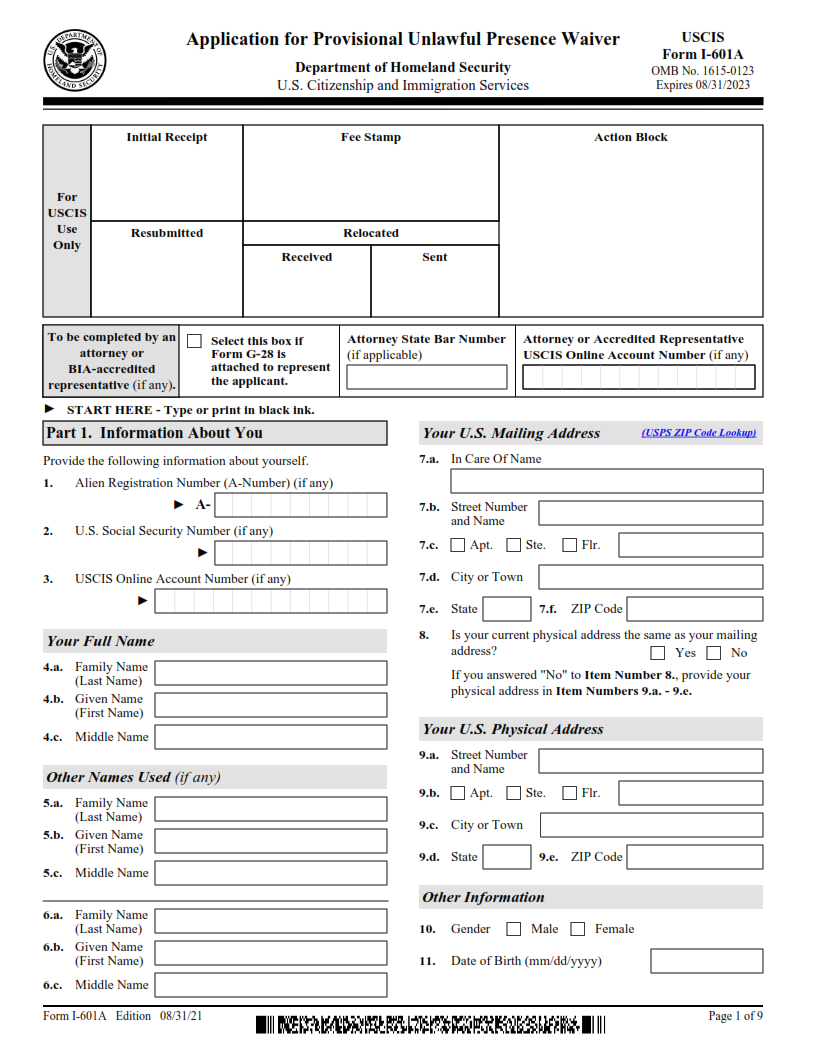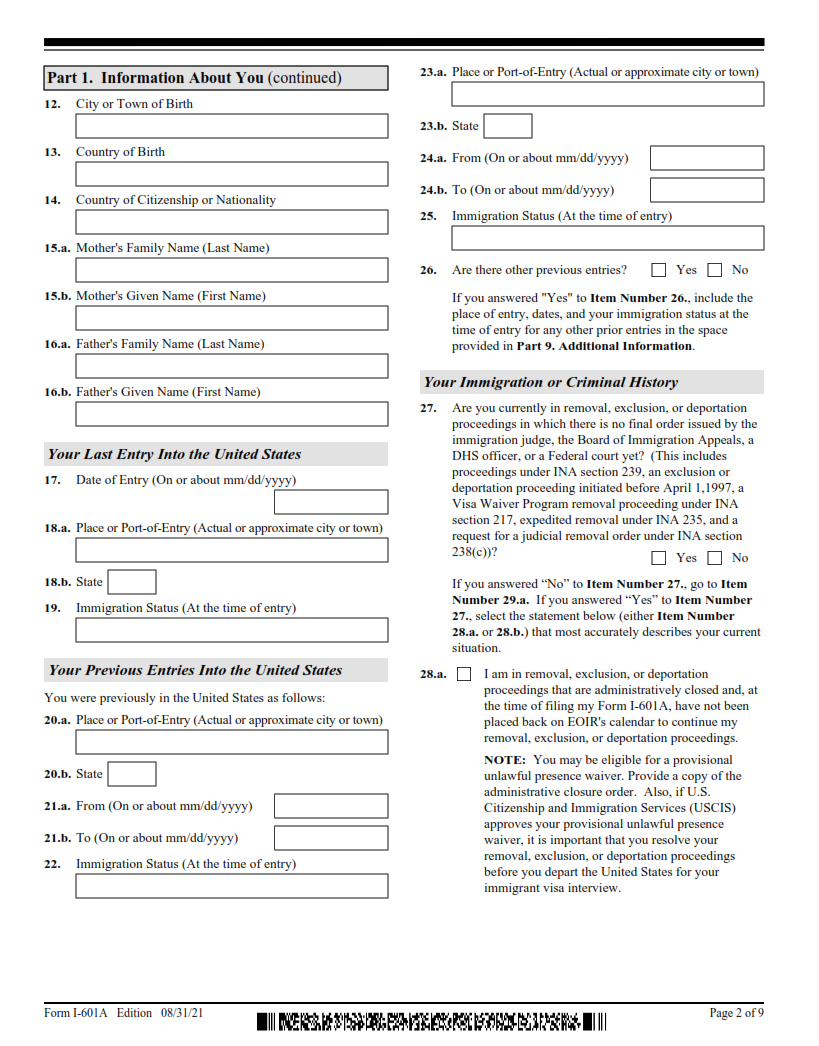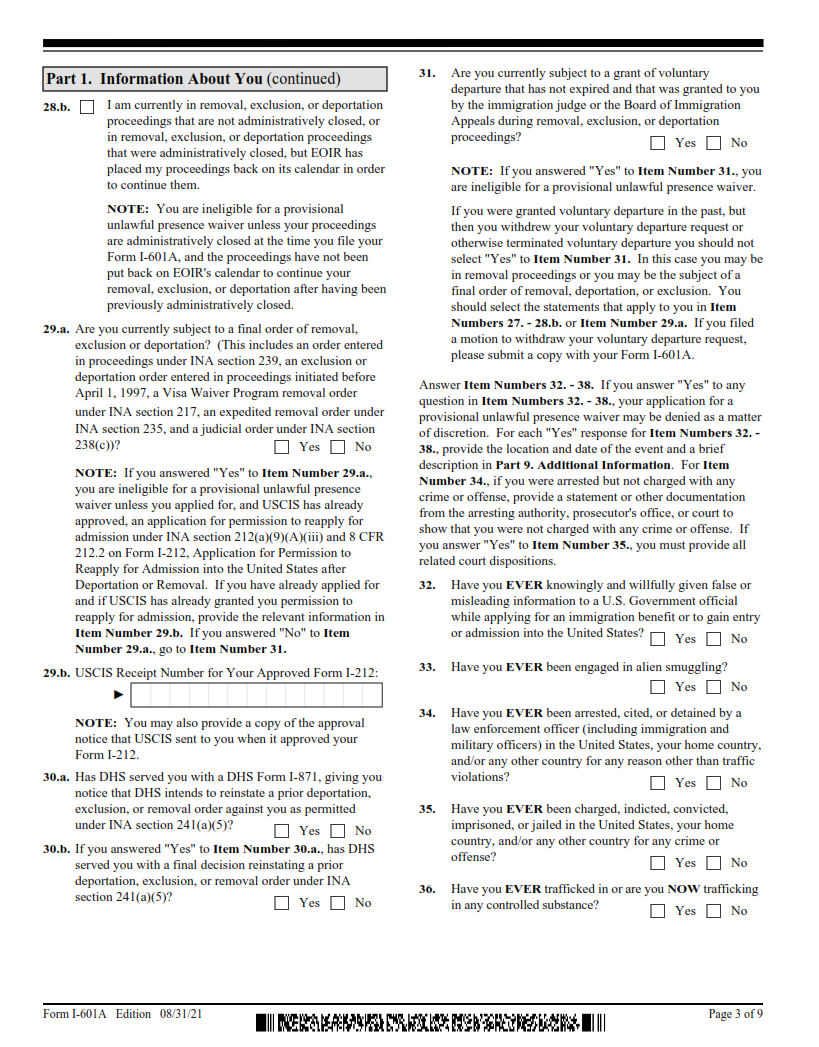FINDERDOC.COM – I-601A Form – Application for Provisional Unlawful Presence Waiver – The I-601A application for Provisional Unlawful Presence Waiver is a form that allows certain individuals to apply for a waiver of the three and ten year bars of inadmissibility due to unlawful presence. Individuals who are in the United States without lawful status and wish to seek an immigrant visa abroad may be eligible for this waiver. The purpose of this article is to explain how and when you can file an I-601A Application, as well as provide information about eligibility and processing times.
Download I-601A Form – Application for Provisional Unlawful Presence Waiver
| Form Number | I-601A Form |
| Form Title | Application for Provisional Unlawful Presence Waiver |
| File Size | 545 KB |
| Form By | California DMV Form |
What is an I-601A Form?
An I-601A form is an application for a provisional unlawful presence waiver. This waiver is issued by the United States Department of Homeland Security and allows noncitizens who are unlawfully present in the country to remain while they wait for their green card application to be processed. The form serves as evidence that the visa holder has been granted permission to stay in the U.S., even if they have overstayed their visa or are otherwise out of status.
In order to qualify for an I-601A form, applicants must be immediate relatives of U.S. citizens and meet certain requirements, including having proof that leaving the United States would cause extreme hardship to their family members who are citizens or lawful permanent residents here in America.
What is the Purpose of the I-601A Form?
The I-601A Form is an application used by those who require a provisional unlawful presence waiver. The purpose of this form is to allow individuals who are unable to adjust their status due to being in the United States illegally, but have a qualifying relative who is a United States Citizen or Lawful Permanent Resident, to apply for a waiver of their unlawful presence. By filing this form, applicants can receive permission from the Department of Homeland Security and U.S. Citizenship and Immigration Services (USCIS) to remain in the United States while they wait for their immigrant visa interview abroad.
The I-601A Form must be filled out accurately with supporting documents and evidence proving that denial of the waiver would cause extreme hardship on certain qualifying family members, such as parents or spouses.
Where Can I Find an I-601A Form?
The I-601A form is an important part of the Application for Provisional Unlawful Presence Waiver process. This form is used to obtain provisional unlawful presence waivers from certain individuals who are not eligible to adjust their status in the United States. In order to complete the waiver application process, applicants must submit Form I-601A along with supporting documents and fees.
Form I-601A can be found on the U.S. Citizenship and Immigration Services (USCIS) website. It is a PDF document that can be downloaded, filled out electronically or printed and completed by hand. It should also include detailed instructions as well as any applicable fees associated with filing this form. Applicants should carefully read all of the instructions before submitting their forms and supporting documents to USCIS.
I-601A Form – Application for Provisional Unlawful Presence Waiver
The I-601A Form, or Application for Provisional Unlawful Presence Waiver, is a document that can be used by certain individuals to apply for a waiver of their unlawful presence in the United States. The form is required when applying for a green card from outside of the U.S., and is available from the U.S. Citizenship and Immigration Services (USCIS). The form requires applicants to provide detailed information about their immigration history and any other relevant information that might help USCIS determine if they are eligible for the waiver.
Applicants must demonstrate “extreme hardship” to an eligible relative as part of their application, which could include demonstrating that being separated from family members would cause them substantial emotional or financial hardship.
I-601A Form Example


